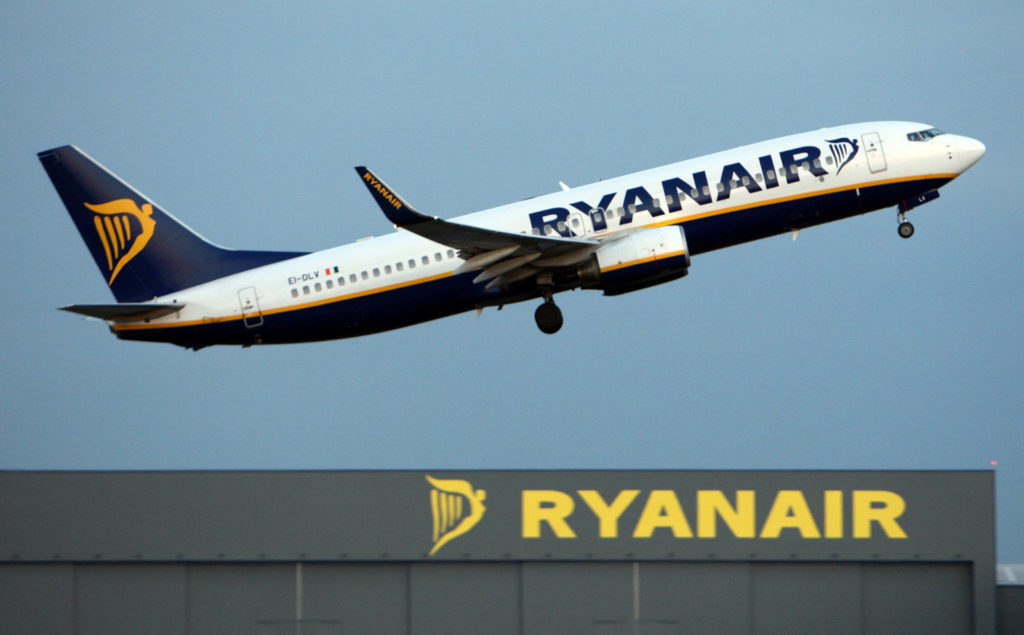
Ryanair has booked a solid increase in full-year profits, but warned that rising oil prices could take the gloss off its performance over the next 12 months.
The budget carrier saw a 10% rise in post-tax profit to 1.45 billion euros (£1.26 billion) in the 12 months to March 31, while revenue jumped 8% to 7.15 billion euros (£6.25 billion).
Passenger numbers were also up, jumping 9% to 130.3 million on the back of falling average air fares, which were down 3% to 39.40 euros.
The solid figures came despite what Ryanair described as a “rostering management failure”, when it was forced to cancel flights after mismanaging pilots’ annual leave.
The September debacle, which affected 700,000 passengers, came alongside pilot strike action.
Ryanair boss Michael O’Leary said: “We are pleased to report a 10% increase in profits, with an unchanged net margin of 20%, despite a 3% cut in air fares, during a year of overcapacity in Europe, leading to a weaker fare environment, rising fuel prices, and the recovery from our September 2017 rostering management failure.”
However, the chief executive also struck a cautious tone over the airline’s prospects for the coming financial year, pointing to higher oil prices and Brexit.
Ryanair expects unit costs over the next year to rise by 9% following the surge in oil prices, which have risen to 80 dollars per barrel. It will add more than 400 million euros to the group’s costs (£349 million).
Staff costs will rise by almost 200 million euros (£174 million).
The net result will be a fall in profits to between 1.25 billion euros and 1.35 billion euros, Ryanair said.
On Brexit, the Irish carrier again said it continues to plan for a hard Brexit in March 2019.
In that scenario, UK shareholders will be treated as non-EU and this could “potentially affect Ryanair’s licensing and flight rights”.
As a result, Ryanair intends to “restrict the voting rights of all non-EU shareholders in the event of a hard Brexit”, in order to ensure it is majority-owned and controlled by EU shareholders at all times.
“This would result in non-EU shareholders not being able to vote on shareholder resolutions. In the meantime, we have applied for a UK AOC which we hope to receive before the end of 2018,” the firm added.
Recommended for you
